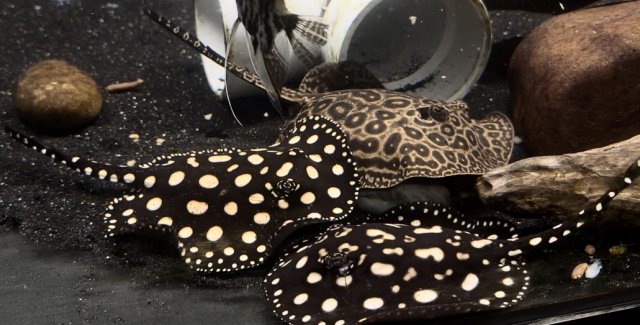Hello all! I would like some advise on managing humidity in my apartment.
I currently have 5 aquariums totaling roughly 500 gallons of water (al190, 170, 75, 40, & 20)
On all of these tanks I have quite well fitting lids, on top of this I run a small dehumidifier and have central air that supposedly helps to dehumidify as well.
The ambient humidity is usually around 40-60%.
I have two main concerns:
1st is the current humidity concerning or damaging?
2nd I intend to add a 7.7’ x 4.7’ x 2’ indoor pond in the near future. Currently plan is to cover with greenhouse panels but VERY concerned about it spiking the humidity. Another concern is the electrical output down there (note: either the 190 or 170 will be decommissioned when this is setup) and whether or not I can run a larger dehumidifier.
For some more details:
- my apartment is in a finished basement with only 2 small windows
- the outside humidity is roughly 60-80% at the moment
- A couple years ago we had to redo wiring because the humidity destroyed the circuit's (this was before the Central air and dehumidifiers)
- this area was not designed for aquariums or fish tanks originally
How do you guys keep humidity down?
I currently have 5 aquariums totaling roughly 500 gallons of water (al190, 170, 75, 40, & 20)
On all of these tanks I have quite well fitting lids, on top of this I run a small dehumidifier and have central air that supposedly helps to dehumidify as well.
The ambient humidity is usually around 40-60%.
I have two main concerns:
1st is the current humidity concerning or damaging?
2nd I intend to add a 7.7’ x 4.7’ x 2’ indoor pond in the near future. Currently plan is to cover with greenhouse panels but VERY concerned about it spiking the humidity. Another concern is the electrical output down there (note: either the 190 or 170 will be decommissioned when this is setup) and whether or not I can run a larger dehumidifier.
For some more details:
- my apartment is in a finished basement with only 2 small windows
- the outside humidity is roughly 60-80% at the moment
- A couple years ago we had to redo wiring because the humidity destroyed the circuit's (this was before the Central air and dehumidifiers)
- this area was not designed for aquariums or fish tanks originally
How do you guys keep humidity down?












